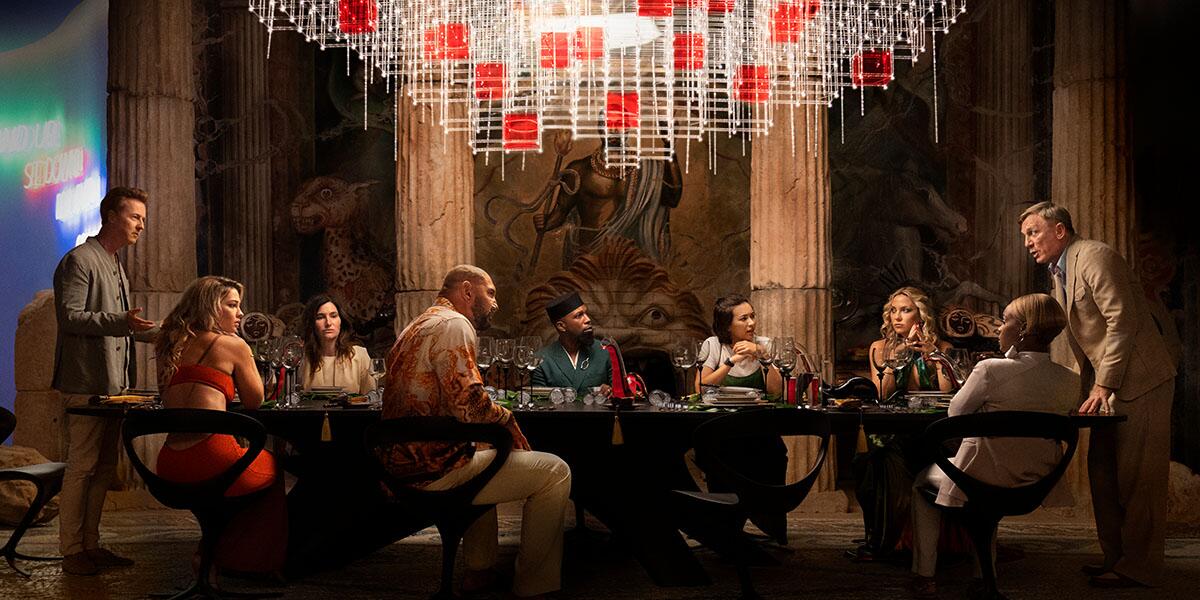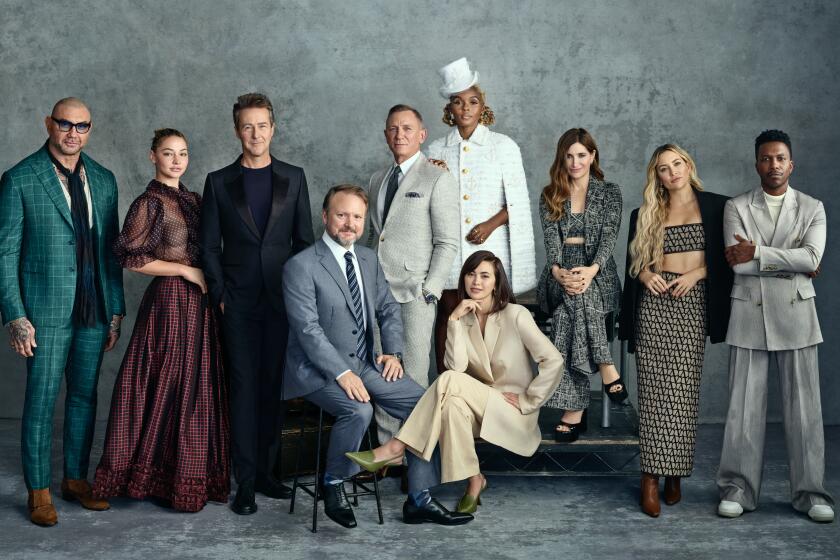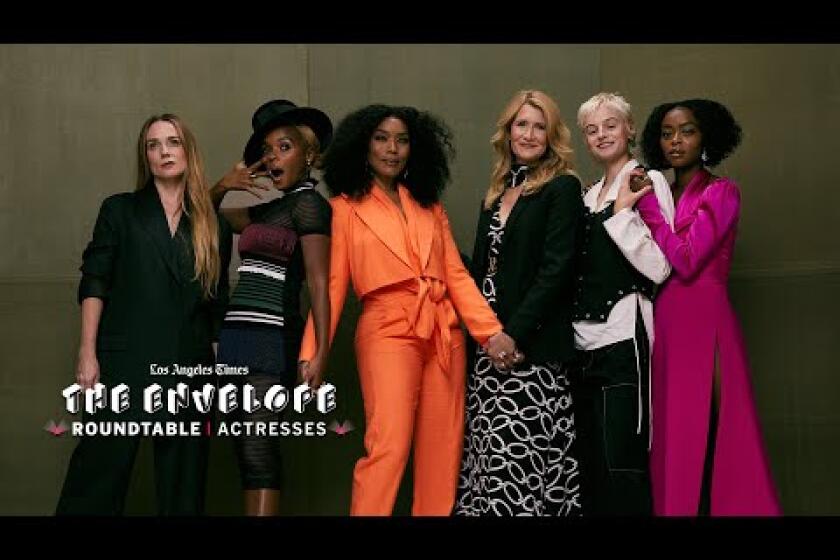How ‘big swings and scary leaps’ got ‘Glass Onion’ made

There’s a common misperception that Agatha Christie repeated herself. An idyllic English country house during a nondescript period of the early 20th century, a body in the library, a stuffy colonel and steely butler and bridge playing old biddies and et cetera et cetera. Wash, rinse and repeat. It’s the reason any new film that tries something modern with the genre (including my own film “Knives Out”) is characterized as subverting or reinventing the form that Christie (along with other authors of the golden age of detective fiction) helped create.
But not one word of the above paragraph is true. Anytime a modern whodunit throws the whole formula on its head, it’s not reinventing Christie, it’s imitating her, and in the sincerest fashion imaginable.
With each new novel, Christie was inventing and reinventing, and flipping the script on what a murder mystery could be. It wasn’t just a change of scenery or the shuffling of the body/murderer/weapon clue cards. She mixed genres, be it a proto-slasher-horror with “And Then There Were None,” a serial killer thriller with “The ABC Murders,” gothic romance with “Endless Night,” and on and on, and she was always finding new ways of challenging herself and surprising her readers. The mechanics of her mysteries took wild leaps too — if someone tried today what she pulled off in “The Murder of Roger Ackroyd,” they’d be called a “disruptor” or worse.
It’s all in the dinner party approach to casting, says the ‘Glass Onion: A Knives Out Mystery’ director.
The notion of her books taking place in out-of-time bubbles of hazy nostalgia is also a myth. In her very first Poirot novel, “The Mysterious Affair at Styles,” our introduction to Hastings (who would be her own Watson) finds him on leave after being injured at the Western front. Christie wrote the book in 1916. Her stories were infused with their present moment, they engaged with the culture, they were about the here and now. They were also personal, shot through with her own experiences.
It’s also bracing to remember how quickly golden age detective fiction became self-aware, deconstructive and even meta. The authors of that time were sending themselves up almost from the beginning, and Christie did this with giddy glee. Through her characters and her detectives, she called out the cliches of the nascent genre, and beyond that she even created the mystery writer Mrs. Oliver, a clowning stand-in for herself.

This was my foundation when I sat down to write “Knives Out”: Try to shake off nostalgia and get back to what Christie’s books actually feel like. So, set it in modern-day America. Make it personal, make it of the right here and now. And try something with it narratively that was genuinely exciting to me, the same way I imagine Christie did with each new book.
Cut to several years later. People enjoyed “Knives Out,” and the idle idea of making more of these things was now not just a reality, but a pressing one. It was time to write a script and to ask the question that sends fear down the spine of any writer: Where to begin?
I began where I started. What would Christie do? Well, she wouldn’t repeat herself. Easiest thing first, she’d shake up the setting. So, the browns of a New England fall give way to the blue and yellows of a Greek island vacation. She’d bring in a fresh cast of characters. This had the extra benefit of giving me another terrific group of actors to get to know and work with (though the downside was that I didn’t get to hang out in Greece with Jamie Lee Curtis).
Bassett, Monáe, Emma Corrin, Kerry Condon, Danielle Deadwyler and Laura Dern open up about the benefits of intimacy coordinators and channeling pain.
Most important, I knew this had to be a whole new story. Not just a new murder method or culprit, but an approach to the narrative and a central conceit that terrified me in the right way, made me wonder, “Wow, I wonder if that could work?” Once I landed on what that was for “Glass Onion,” I didn’t know if it would work, but I knew it had its own reason for being, beyond “let’s make another one.”
This is one of many reasons I thank high heaven that I’ve tethered my boat to Mr. Daniel Craig. Daniel is turned on not by creating a comfortable bed of predictable success, but by surprising ourselves (and, hopefully, the audience) with big swings and scary leaps. As much as we love making these movies together, there’s great comfort in knowing that the instant either of us feels we’re turning the crank on the sausage grinder, that we’re repeating ourselves, we’ll stop.
After all, Agatha Christie didn’t repeat herself. That’s a common misperception. I’ve said that already, sorry, I’m repeating myself. So as promised, I’ll now stop.
More to Read
From the Oscars to the Emmys.
Get the Envelope newsletter for exclusive awards season coverage, behind-the-scenes stories from the Envelope podcast and columnist Glenn Whipp’s must-read analysis.
You may occasionally receive promotional content from the Los Angeles Times.










